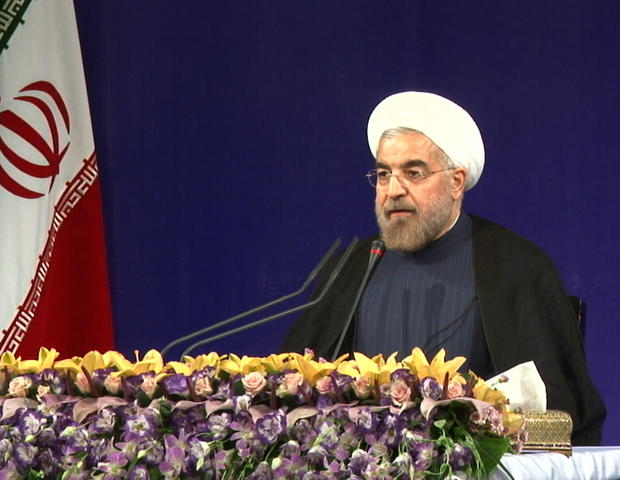Iran's new president hints at possibility of talks with U.S.
(CBS News) TEHRAN, Iran -- Iran's new president, Hasan Rouhani, held his first news conference Tuesday. He gave the strongest indication yet that Iran wants to settle the dispute over its nuclear program. We were among the correspondents who questioned Rouhani in Tehran.
As he arrived to face a room full of journalists, President Rouhani knew there would be no ducking the sensitive issue of U.S-Iranian relations.
Iran is ready to resume nuclear talks, new president says
Hasan Rouhani, Iran's new president, sworn in
New Iran president Hasan Rouhani calls Israel an "old wound"
We asked him: "Do you see any prospect of direct talks with the American administration during your term in office?"
Shrewd diplomat that he is, Rouhani didn't say yes. But he didn't say no, either.
Watch video below of CBS News correspondent Elizabeth Palmer asking Iran's new president, Hasan Rouhani, on the possibility of talks with the U.S.:
"If it were in our national interest," he said, "we would have no problem talking to anyone of good will -- even the United States."
Iran's new president is under enormous pressure from voters to rescue their battered economy. To do that, he needs the U.S. to lift international sanctions, which were imposed to force Iran to prove it's not developing nuclear weapons.
On Tuesday, Rouhani signaled loud and clear that he does want a deal that would satisfy the U.S. and its allies -- and dial back the threat of a military confrontation.
"I, as the president, announce that Iran has a serious political will to solve the nuclear problem," he said.
To the reporters in the room -- and to governments watching around the world -- it sounded like the clearest commitment in years that Iran is ready to compromise on a nuclear agreement.
But Rouhani also criticized mixed messages coming from Washington: on the one hand, pressure for even more sanctions; on the other, the White House's offer to be a willing partner in negotiations. Threats won't lead to a deal, he said, only respectful dialogue would.

